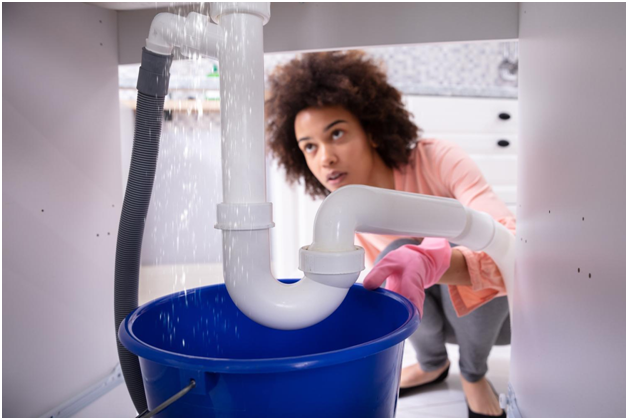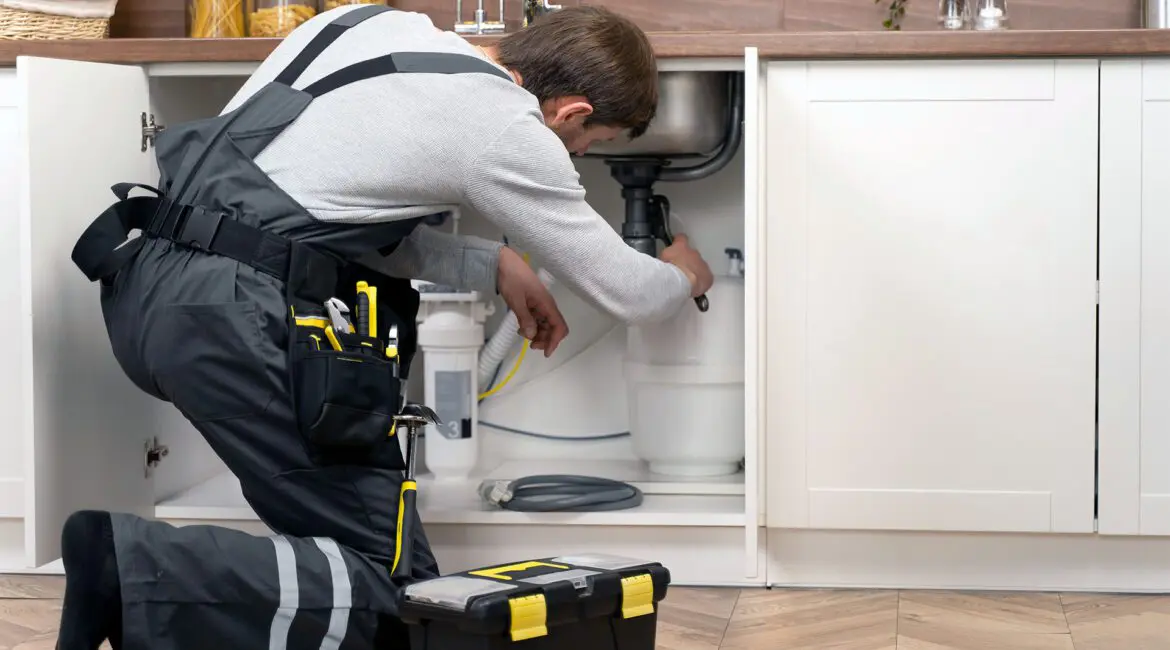Critical Plumbing Solutions: What to Do Until Help Arrives
Critical Plumbing Solutions: What to Do Until Help Arrives
Blog Article
How do you really feel in regards to Expert Tips for Managing a Plumbing Emergency Until Help Arrives?

Plumbing emergency situations can strike at any moment, triggering stress and anxiety and prospective damages to your home. Whether it's a ruptured pipeline, a clogged up drainpipe, or a dripping tap, recognizing just how to handle the situation until a professional plumbing technician shows up can save you from further complications. This write-up gives vital emergency situation pipes tips to aid you mitigate damages and reclaim control throughout a pipes situation.
Turn Off the Supply Of Water
The primary step in any type of plumbing emergency is to shut off the supply of water. For localized problems, such as a leaking faucet or commode, turn off the shutoff near the fixture. When it comes to a major leak or ruptured pipe, find your home's major water shut-off valve and turn it off promptly. Understanding the place of these shutoffs in advance can save beneficial time during an emergency.
Address Small Leakages with Short-lived Repairs
Small leakages can promptly end up being considerable problems if left uncontrolled. Use these momentary repairs up until professional help shows up:
While these fixes aren't long-term, they can assist lessen water loss and damages.
Unclog Drains Pipes Safely
A stopped up drainpipe can be an aggravating and untidy concern. Below's how to tackle it:
If these techniques do not work, stay clear of using extreme pressure, as it may intensify the clog.
Manage Overflowing Toilets
An overruning commode can cause instant disorder. Here's what you must do:
Shut down Your Water Heater
In specific emergency situations, such as a ruptured pipe, it's smart to shut down your hot water heater. This prevents overheating or damage to the device when water quits moving. Turn off the power supply to the hot water heater (electrical or gas) and let it cool down to avoid prospective threats.
Temporarily Stop a Burst Pipe
A burst pipe can result in considerable water damages in mins. To reduce the issue:
Call a specialist plumbing professional promptly to attend to the issue permanently.
Handle Frozen Pipes Carefully
In colder environments, icy pipes are a typical emergency. If you presume an icy pipeline:
Avoid More Damage
Taking fast action to decrease damage can conserve you time and money in the future. Here's exactly how:
. Have an Emergency Pipes Kit
Prepare a fundamental plumbing emergency situation kit to deal with small issues successfully. Your package should consist of:
Having these devices accessible can make a significant distinction in your capacity to take care of emergencies.
Know When to Call a Professional.
While quick fixes can assist briefly, specific pipes issues need prompt specialist focus. Call a plumbing technician if:.
Without delay speaking to a specialist ensures the issue is fixed properly and stops additional issues.
Final thought.
Plumbing emergency situations can be overwhelming, however with the best understanding and tools, you can manage the situation efficiently until help gets here. By switching off the water, addressing small leaks, and utilizing short-term fixes, you can minimize damage and keep your home safe. Remember, these tips are momentary options; always speak with a licensed plumbing professional to manage the root cause of the trouble. Prep work and quick reasoning are your best allies in any type of plumbing emergency situation.
Expert Tips for Emergency Plumbing Repairs
Plumbing emergencies can be incredibly stressful and inconvenient. Whether it’s a burst pipe, a clogged drain, or a leaky faucet, these common plumbing emergencies need immediate attention to prevent further damage to your home. But before you panic, it’s important to understand the basics of plumbing repairs and the steps you can take to address these emergencies. In this article, we will share some expert tips to help you navigate through these situations and minimize potential water damage.
Identifying Common Plumbing Emergencies
Leaky pipes and faucets Clogged drains and toilets Burst pipes Low water pressure Water heater problems Essential Tools for Plumbing Repairs
Plunger: Useful for unclogging toilets and drains Adjustable wrench: Needed for tightening or loosening nuts and bolts Pipe wrench: Ideal for gripping and turning pipes Tape measure: Necessary for accurate pipe measurements Plumber’s tape: Helps create watertight seals Understanding Emergency Plumbing Services
Emergency plumbing services are designed to provide immediate assistance for unexpected plumbing issues that can cause significant damage to your home, business, or health. These services are typically available 24/7 and are staffed by experienced plumbers who can quickly diagnose and repair a wide range of plumbing problems.
When a plumbing emergency strikes, time is of the essence. Whether it’s a burst pipe flooding your basement or a gas leak posing a serious risk, emergency plumbing services ensure that help is just a phone call away. These professionals are equipped with the tools and expertise to handle any situation, minimizing damage and restoring your plumbing system to proper working order.
What Constitutes a Plumbing Emergency?
Burst pipes or water supply lines: These can cause extensive water damage and need immediate repair to prevent flooding. Gas leaks or suspected gas leaks: Gas leaks are extremely dangerous and require prompt attention to avoid potential explosions or health hazards. Sewer backups or overflows: These can lead to unsanitary conditions and significant property damage. Clogged drains or toilets causing water to overflow: Overflowing water can damage floors, walls, and other structures. Leaks or water damage causing structural damage: Persistent leaks can weaken the structural integrity of your home or business. No hot water or heating: A lack of hot water can be more than an inconvenience, especially in colder months. Common Causes of Plumbing Emergencies
Aging or corroded pipes: Over time, pipes can deteriorate, leading to leaks or bursts. Improperly installed or maintained plumbing fixtures: Faulty installations or lack of maintenance can result in unexpected failures. Tree roots or other debris infiltrating your sewer line: Roots can grow into pipes, causing blockages and backups. Frozen pipes or water supply lines: In colder climates, pipes can freeze and burst, leading to significant water damage. High water pressure or sudden changes in water pressure: Excessive pressure can strain pipes and fixtures, causing them to fail. Natural disasters such as floods or earthquakes: These events can disrupt your plumbing system and cause severe damage. Steps to Minimize Water Damage
Locate the water shut-off valve: Knowing where the valve is can help you quickly cut off the water supply to the affected area. Turn off the water heater: If there’s a risk of water coming into contact with the heating element, make sure to turn off the water heater to avoid potential accidents. Open faucets and drain pipes: By opening faucets and drain pipes, you can relieve pressure and empty any standing water. Collect and contain water: Use towels, buckets, or bins to collect water and prevent it from spreading to other areas of your home. https://leecountyplumbingandwellservice.com/expert-tips-for-emergency-plumbing-repairs/

Do you appreciate reading up on What to Do While Waiting for an Emergency Plumber? Write a remark down the page. We'd be pleased to see your thinking about this piece. We hope that you come back again soon. Enjoyed our blog posting? Please share it. Help someone else find it. We treasure your readership.
Book Services Report this page